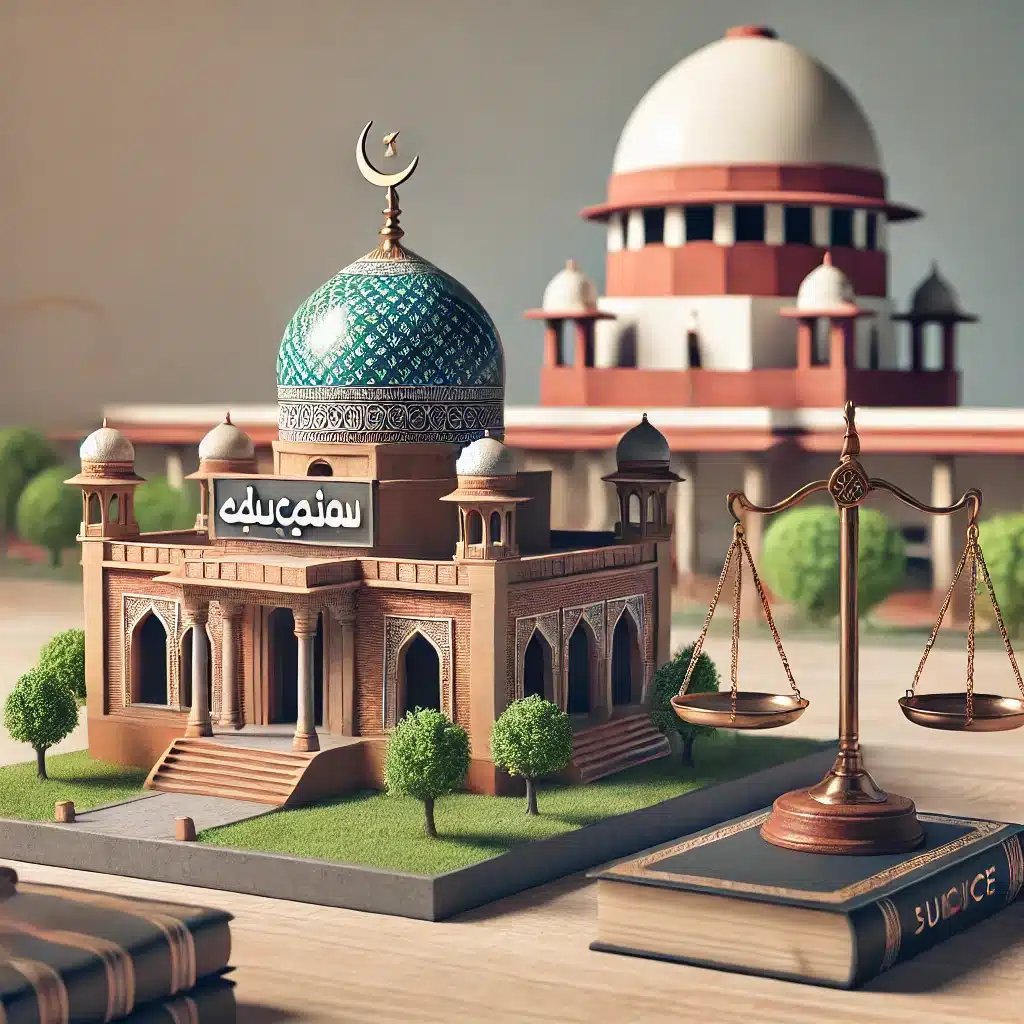The Supreme Court, while hearing appeals against the Allahabad High Court’s judgment on the Uttar Pradesh Board of Madarsa Education Act, questioned the National Commission for Protection of Child Rights (NCPCR) about its specific focus on Madrasas. The Court asked whether similar standards were app

In a significant hearing, the Supreme Court of India scrutinized the National Commission for Protection of Child Rights (NCPCR) regarding its stance on Madrasas. The case emerged from appeals challenging the Allahabad High Court’s decision to strike down the Uttar Pradesh Board of Madarsa Education Act, 2004 as unconstitutional. On Tuesday (October 22), a bench comprising Chief Justice of India DY Chandrachud, Justice JB Pardiwala, and Justice Manoj Misra engaged in a detailed inquiry into whether the NCPCR had applied the same approach to other religious institutions as it had to Madrasas.
Supreme Court Questions NCPCR’s Focus on Madrasas
- The Supreme Court sought an explanation from the NCPCR on why its directives seemed targeted at Madrasaswhile similar religious institutions of other communities were not under similar scrutiny.
- Chief Justice Chandrachud raised the question: “Has NCPCR banned religious instructions in other communities or not?”
- Justice Pardiwala asked whether NCPCR had conducted an in-depth study of the Madarsa syllabus and whether it had a thorough understanding of what religious instruction entails.
NCPCR’s Stand on Religious Education
- Senior Advocate Swarupama Chaturvedi, representing NCPCR, clarified that the commission was not opposing religious instruction itself.
- She explained, “We are a secular country, and secularism does not mean stopping anybody but respecting others’ religion and culture.”
- She added that the issue was that religious studies in Madrasas were being used as substitutes for mainstream secular education, which violates Article 21A of the Indian Constitution.
Concerns Over Article 21A
- The CJI emphasized the importance of upholding Article 21A, which ensures children’s right to free and compulsory education.
- He inquired, “Has NCPCR issued any instructions, cutting across communities, that you will not take children into your religious institutions unless they are taught secular subjects?”
- Justice Pardiwala further questioned whether children in Madrasas could lead dignified lives without access to secular education, stressing the State’s obligation under Article 21A.
Petitioners’ Objections
- Senior Advocate MR Shamshad, representing the petitioners, claimed that the NCPCR’s report contained objectionable language that he described as “Islamophobic”.
- He argued that negative media portrayal of Madrasas had created a harmful perception.
- Shamshad added that if the State increased the number of general schools in Muslim-dominated areas, Madrasas would naturally diminish in number.
Court’s Inquiry About Equal Treatment
- The Supreme Court was adamant about ensuring equal treatment across religious communities.
- The bench asked, “Why are you only concerned with Madrasas? We want to know whether you have dealt with other institutions. Show us where the directives are issued.”
- The Court also questioned whether NCPCR had ever issued directives to other religious educational institutions, such as Monasteries or Pathshalas, ensuring they included secular subjects in their curricula.
Case Proceedings and Next Steps
- The NCPCR’s counsel undertook to file an additional statement clarifying the organization’s position and whether it had acted similarly concerning other religious institutions.
- The Court has reserved its judgment in the matter and directed NCPCR to provide further documentation regarding its treatment of educational institutions across various religious communities.
- Petition Filed By: Islamic clerics’ body Jamiat Ulema-I-Hind and Madaris Arabiya UP Managers Association.
- Representatives: Senior Advocate MR Shamshad for the petitioners; Senior Advocate Swarupama Chaturvedifor NCPCR.
Case Title: Anjum Kadari & Anr. v. Union of India & Ors.; Diary No. 14432-2024; Managers Association Madaris Arabiya UP v. Union of India, SLP (C) No. 7821/2024 & connected matters.





